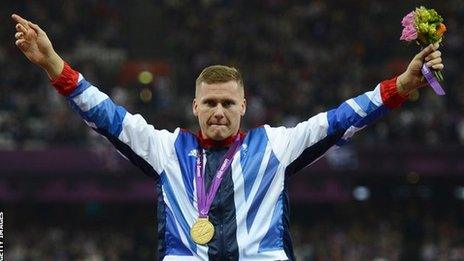Olympics & Paralympics 2020: Badminton among seven sports to lose funding appeals
- Published
- comments
Nicholl defends funding cuts to seven UK sports
Badminton is one of seven sports to have lost appeals against UK Sport funding cuts for the Tokyo 2020 Olympic and Paralympic cycle.
The decision comes despite Marcus Ellis and Chris Langridge winning bronze for Great Britain in the men's doubles at the Rio 2016 Olympics.
Archery, goalball, fencing, table tennis, weightlifting and wheelchair rugby will also receive no funding.
However, powerlifting was successful in its appeal to UK Sport.
It means the sport's £1.3m funding will be managed by British Weightlifting and not the English Institute of Sport, as was the case before the 2016 Olympics.
GB Badminton said it was "staggered", external by the decision to reject its appeal.
But UK Sport chief executive Liz Nicholl said none of the seven sports had provided "critically compelling new evidence" that changed the assessment of their medal potential.
Mike Reilly, CEO of Goalball UK, said his organisation was hopeful UK Sport would find "other ways to help us secure a clear and sustained talent pathway" to Tokyo 2020.
Wheelchair rugby has been stripped of £750,000, and BBC Sport understands the Rugby Football Union (RFU) will not step in to increase support for its disability counterpart.
The RFU gives about £100,000 per year to the sport known as 'murderball', and England full-back Mike Brown headed a recent campaign, external to help raise funds, but there are now fears its elite team could fold.
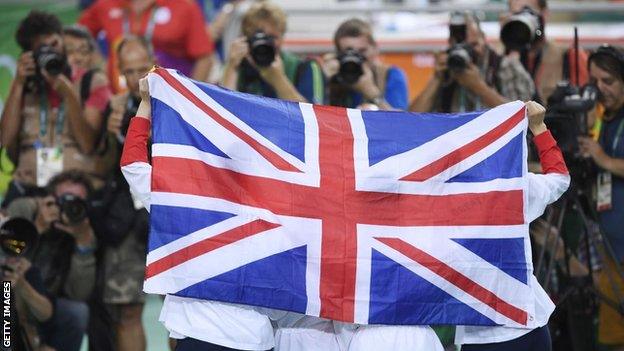
Great Britain came second in the medal tables at both the 2016 Olympics and 2016 Paralympics
'It's going to be tough for the sport'
Compared with the four-year build-up to the Rio Games, badminton is the biggest loser in cash terms, as it was given £5.7m last time.
The cut comes despite the sport hitting its medal target thanks to Ellis and Langridge winning only Britain's third Olympic badminton medal.
GB Badminton said in a statement: "Given the strength of evidence we were able to present to justify investment, we cannot believe UK Sport has concluded they should stand by their decision and award zero funding to our GB programme.
"We have players who are on track to win medals for the nation at the Tokyo 2020 Olympic Games and our belief in those players remains as great as it's ever been. We will now take some time to consider our next steps."
Gail Emms, a silver medallist for Great Britain at Athens 2004, said she was "gutted".
She said: "It is heart-wrenching. It was bad enough in December when the initial decision was made but now we are super devastated.
"The players out there were really pinning their hopes on this. I was such an optimist; I thought it was going to be OK. We put forward a strong case. It is going to be tough now for the sport."
Emms 'devastated' by badminton funding loss
Analysis
Dan Roan, BBC sports editor:
UK Sport's money has transformed Britain into an Olympic and Paralympic superpower, but its 'no-compromise' approach is under more scrutiny than ever.
With falling ticket sales hitting crucial National Lottery funding, resources are undoubtedly stretched but, for the first time, sports with real podium potential are being excluded from funding, and many are now asking whether the focus on medals has gone too far.
How have the other sports reacted?
Table tennis was another sport to be disappointed, despite Britain winning a bronze medal at the 2016 World Team Championships.
Sara Sutcliffe, Table Tennis England chief executive, said: "We're naturally disappointed, having made what we believe was a very strong case for a relatively small amount of funding.
"We overachieved on everything we were asked to do in the 2016 cycle, and did so without funding. We were left without funding because, effectively, the goalposts were moved. We will take time to absorb this decision before we decide on the best course of action."
Georgina Usher, chief executive of British Fencing, said the organisation would try to hold fundraising events to support its athletes.
"This has been an incredibly difficult period for the athletes and programme staff," she said.
"Our staff, coaches and athletes have worked incredibly hard to have got to the point where we are absolutely good enough to target an Olympic medal. Having to explain to them why the programme funding will be coming to an end is extremely tough.
"We will be appealing against this decision as we owe it to our athletes to pursue every avenue open to us to challenge this funding decision process."
Goalball chief executive Reilly was more upbeat, saying: "Though we did not fit the UK Sport criteria to move up categories, and so secure funding, we were very much encouraged by their response to our representation.
"There is certainly a sense of the board understanding the difficulties we face and an acknowledgement of our incredible success."
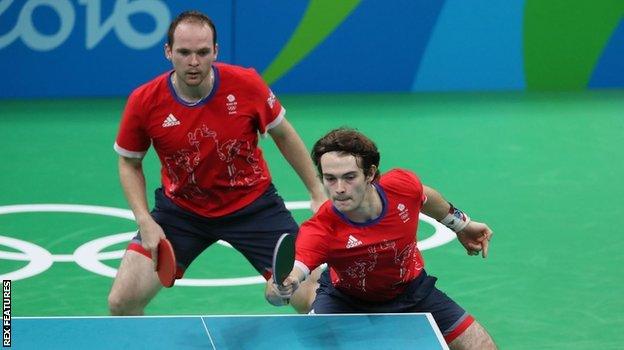
Great Britain reached the quarter-finals in the men's team event at the 2016 Rio Olympics, before losing to 2012 gold medallists China, who went on to win gold again
'We don't take these decisions lightly' - UK Sport's reaction
Nicholl said: "The sports that made representations were unable to provide any critically compelling new evidence that changed our assessment of their medal potential for Tokyo.
"Their position in our meritocratic table therefore remains unchanged and they remain in a band we cannot afford to invest in.
"This is the first time we've been unable to support every sport that has athletes with the potential to deliver medals at the next Games. We don't take these decisions lightly as we're acutely aware of the impact they have on sports, athletes and support personnel.
"To support those affected, we have put in place a comprehensive transition and support package and are working closely with these sports to help staff and athletes move out of UK Sport funding."
What is the background?
In December, UK Sport announced the funding for the cycles for the Olympics and Paralympics in Tokyo in 2020.
Archery, badminton, fencing, goalball, table tennis, weightlifting and wheelchair rugby appealed to UK Sport to review the decision on what they had been awarded.
UK Sport says it must prioritise sports with the strongest medal potential for Tokyo and the appeal process was essentially a second opportunity for officials to demonstrate why they deserve funding.
A total of £345m will be invested in 31 Olympic and Paralympic sports - £2m less than the record £347m allocated for the Rio Games.
UK Sport has set Team GB a target of winning between 51 and 85 Olympic medals, and 115 to 162 Paralympic medals in 2020.
Analysis
Nick Hope, BBC senior Olympic sports reporter:
Understandably, the headlines will be dominated by news of the seven sports - including British Weightlifting's Olympics team - who have not been able to overturn UK Sport's initial funding decisions.
However, the victory for British Weightlifting's Paralympic programme should not be overlooked. UK Sport had planned to move control of the funding award for the disability sport set-up to the English Institute of Sport (EIS). This would not only have seen the closure of the entire GB Weightlifting programme (for Olympic and Paralympic athletes), but also potentially set a new precedent for how funding could be allocated in the future.
The EIS is essentially an extended arm of UK Sport - looking after anything from nutrition to physiotherapy and athlete lifestyle/welfare. Figures from several other Olympic and Paralympic sports have told me of their concerns about what giving EIS greater power would have meant for future funding decisions beyond Tokyo.
As it stands, those concerns will have been allayed somewhat - but it will be interesting to see whether UK Sport will continue to push in this direction and essentially seek greater control and governance of the funding it awards over each four-year-cycle.
- Published9 December 2016
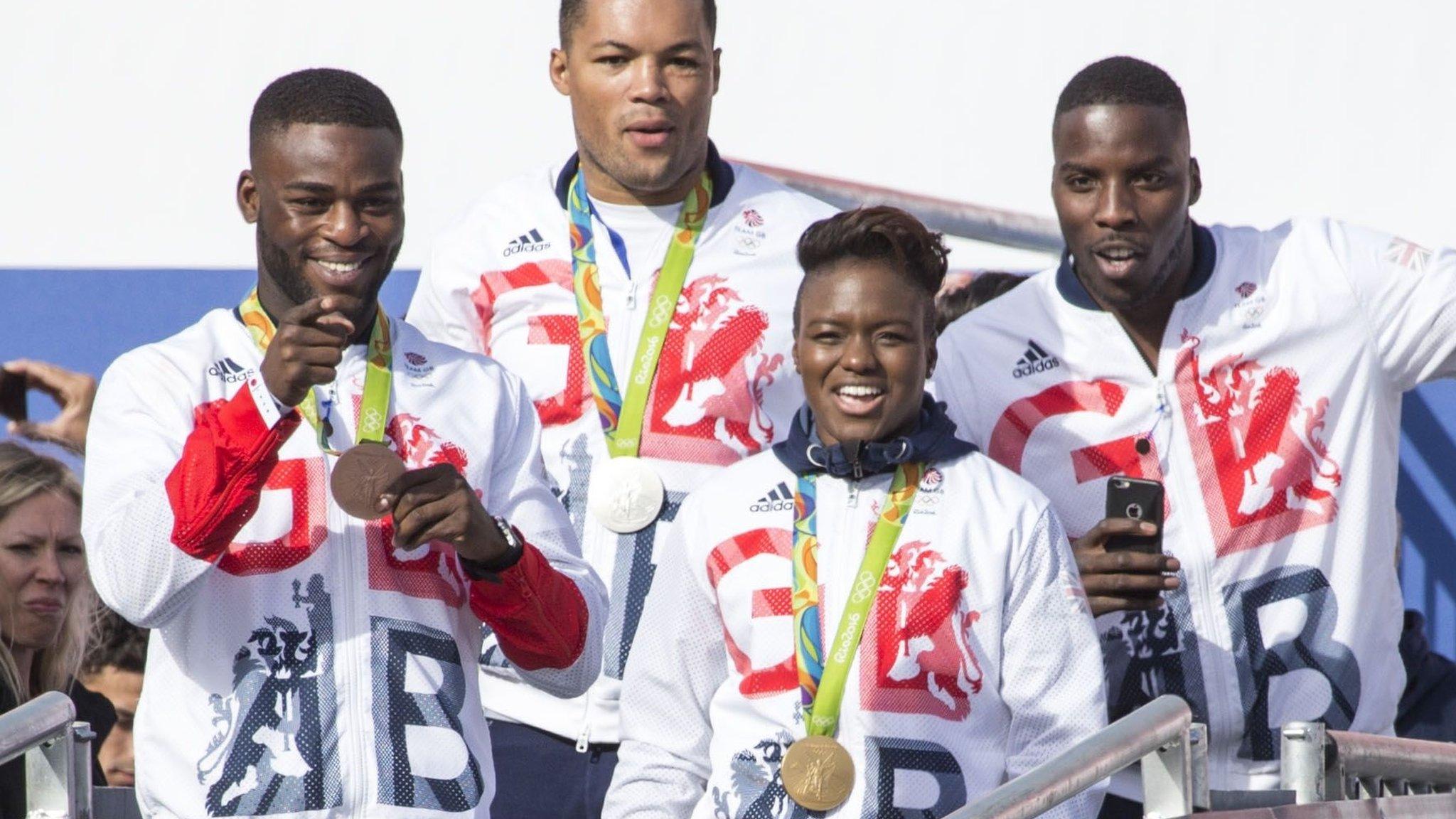
- Published10 December 2016
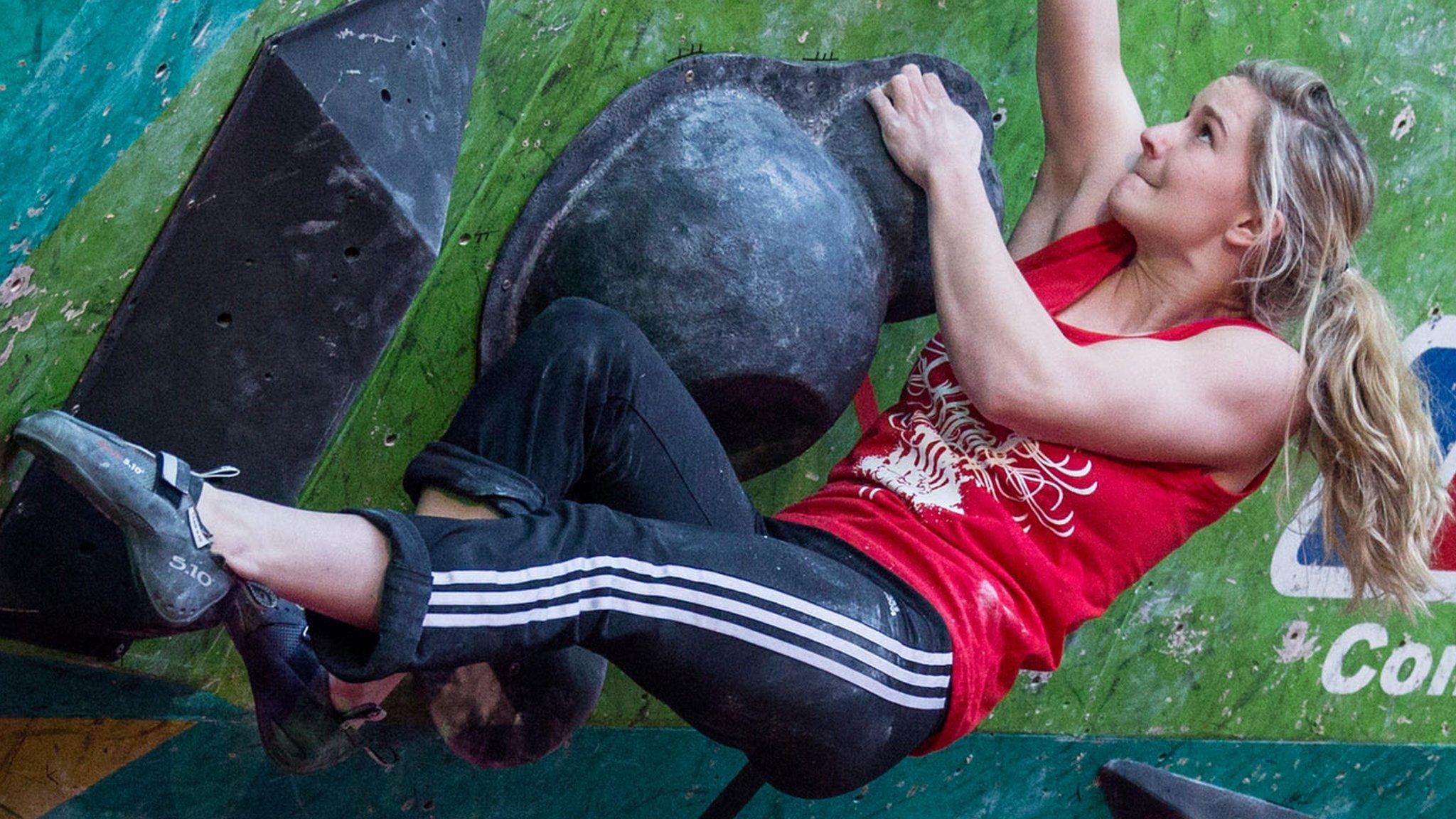
- Published31 October 2016
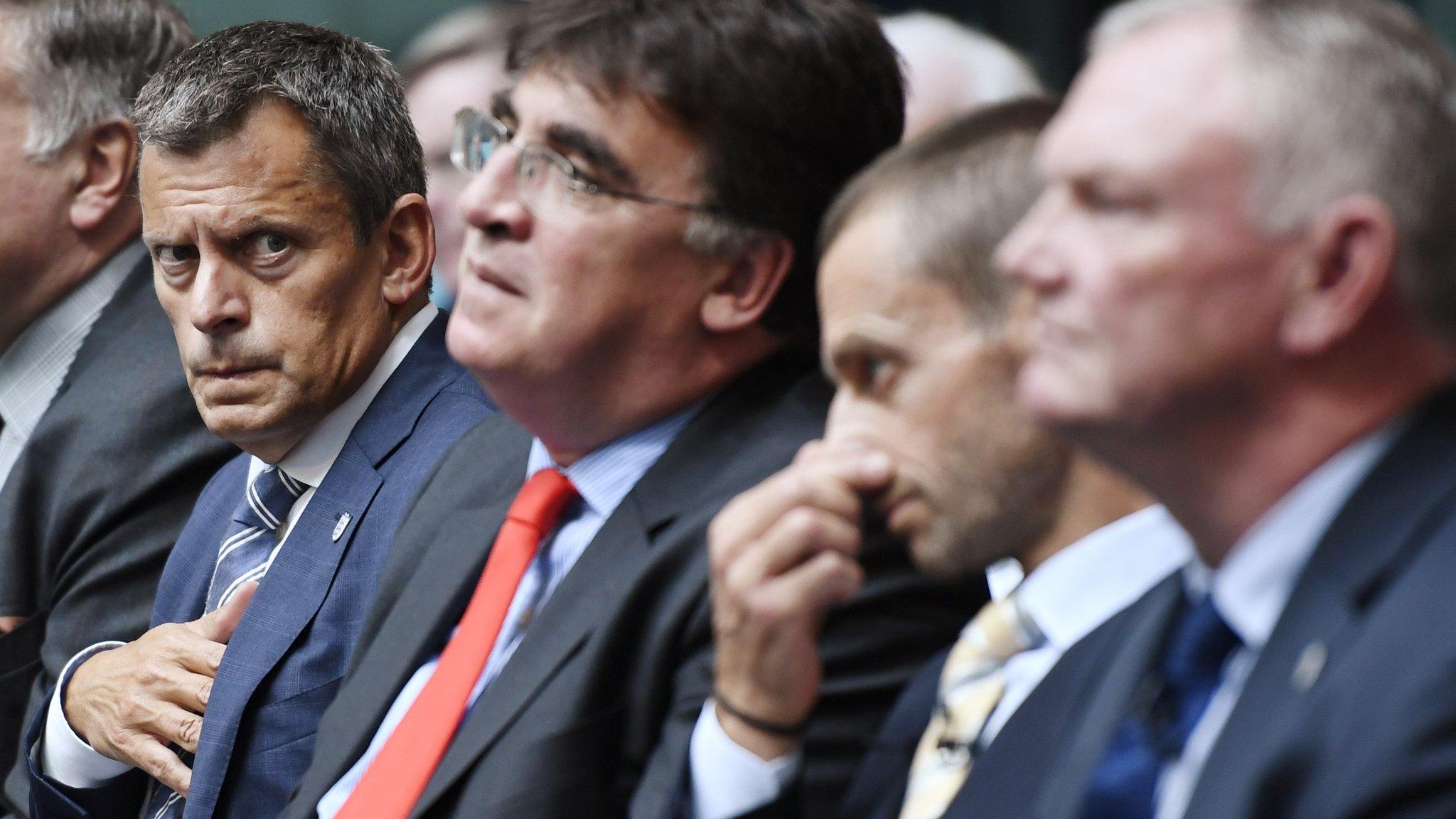
- Published21 August 2016
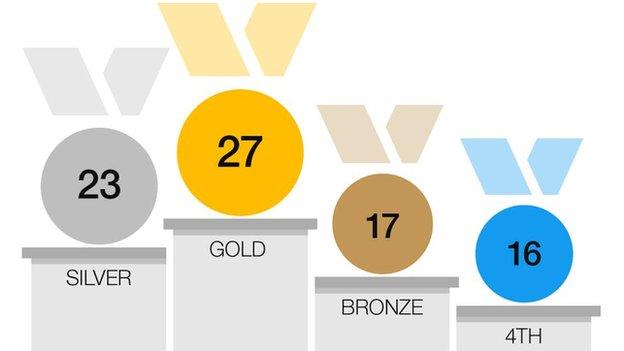
- Published19 December 2012
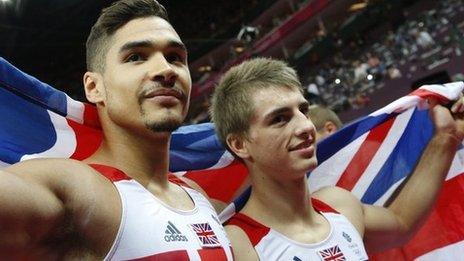
- Published18 December 2012
